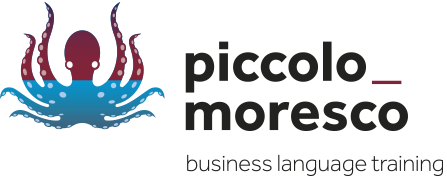Talk languages is undoubtedly the most immediate way to integratein a multicultural context.
Implica un cambio de perspectiva e inaugura el ingreso a un mundo con otros códigos y normas.
Speaking a language is a process that requires time, perseverance, and patience. A good teacher, especially in the initial phase. And genuine motivation.
Without these elements, any language course is destined to fail.
Después de haber realizado el diagnóstico procedemos a:
- the analysis of the results. Point by point.
- sending a proposal for intervention. Read it carefully.
- resolving doubts. If you accept, you must be clear about it.
- the assignment of the trainer. This phase is very important.
- the beginning of training. Go ahead!
For the course to work, the first thing we do is a diagnosis. It includes a placement test and valuable information gathering so we can be clear about your goal:
- Why you want/should speak the language.
- The context in which you will use the language.
- The reference lexicon.
- The means you have at your disposal and the deadlines.
- Tu perfil académico, personal y profesional.
Según el país extranjero con el cual te relacionas o relacionarás, tienes que desarrollar habilidades concretas si quieres crear relaciones exitosas.
ITALY
ITALIAN COURSES: general, aziendale Y enfocado a tu sector.
LEXICON COURSES: the meeting, HR, the business lunch, THE administrative sphere.
OFFICIAL EXAM PREPARATION COURSES: CILS, DILC B1 and DALC C1: intermediate and advanced diploma in business Italian.
Pronunciation and phonetics workshops.
SPAIN
SPANISH COURSES: general, business, and focused on your sector.
LEXICON COURSES: the meeting, HR, the administration department, on the phone.
OFFICIAL DELE EXAM PREPARATION COURSES.
Pronunciation and phonetics workshops.
ANGLOPHONE COUNTRIES
ENGLISH COURSES: general, Business y enfocado a tu sector.
LEXICON COURSES: the meeting, the HR department, the cocktail party.
OFFICIAL EXAM PREPARATION COURSES: Cambridge, TOEFL, TOEIC, Aptis ESOL.
Pronunciation and phonetics workshops.
PORTUGAL AND BRAZIL
PORTUGUESE COURSES: general, business, and focused on your sector.
Pronunciation and phonetics workshops.
FRANCE
FRENCH COURSES: general, business, and focused on your sector.
Pronunciation and phonetics workshops.
¿Qué son los CURSOS DE LÉXICO?
Cada entorno laboral tiene sus códigos: el abogado tiene su vocabulario para comunicar con otros abogados, el químico con otros químicos, así el arquitecto, el estilista… Cuando existe una barrera lingüística, conocer este código permite acortar la distancia en tiempos breves y comunicar, aunque no se domine el idioma del otro.
Los cursos generales de idiomas a menudo descuidan este aspecto, centrándose más en las funciones comunicativas genéricas y en los objetivos gramaticales acordes al Marco Común Europeo de Referencia. Así que se acaba hablando otro idioma, pero se sigue ignorando aquel lenguaje sectorial que es el verdadero motivo por el cual una empresa solicita un curso y que, si se domina, acelera las funciones comunicativas.
El objetivo de estos cursos es ampliar tu léxico profesional para que, cuando te relacionas con extranjeros:
- no te parezca que tu interlocutor hable en código
- puedas participar activamente en las conversaciones
- no te sientas frustrado a la hora de contestar a un correo
- tu lenguaje sea preciso y mirado
